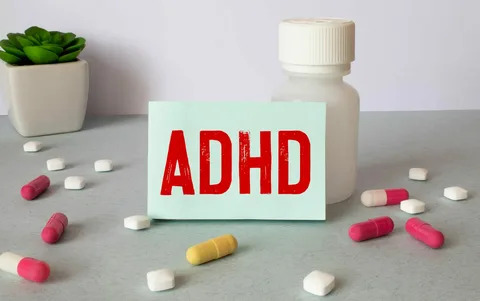For mental health, interpersonal relationships, and general quality of life, emotional regulation is essential. Due to the neurobiological abnormalities linked to Attention Deficit Hyperactivity Disorder (ADHD), emotional regulation difficulties are frequently experienced by those who have the disorder. Medication for ADHD can have a big impact on emotional regulation, which affects stress management, mood stability, and impulsive control. Optimizing treatment outcomes and enhancing emotional well-being require an understanding of the relationship between emotional control and ADHD medication.
ADHD’s Effect on Emotional Control
Factors related to the nervous system
Attention deficit hyperactivity disorder (ADHD) is typified by problems with hyperactivity, impulsivity, and attention that are influenced by neurobiological variables such as abnormalities in brain structure and function and neurotransmitter imbalances. These elements may also have an impact on emotional regulation, which may result in increased emotional reactivity, impulsivity, and trouble controlling powerful emotions.
Dysregulation of Emotions
Emotional dysregulation, which is typified by abrupt mood swings, strong emotional reactions, and difficulty controlling emotional arousal, is a common occurrence in people with ADHD. This may exacerbate issues with managing stress, interacting with people in social situations, and preserving emotional stability.
Effect on Day-to-Day Operations
Relationships, success in school or the workplace, and self-esteem are just a few areas of life that can be impacted by the emotional dysregulation linked to ADHD. Furthermore, it may exacerbate co-occurring diseases such mood disorders, anxiety, and depression.
The Impact of ADHD Medication on Emotional Control
Drugs that Stimulate
Methylphenidate (Ritalin, Concerta) and amphetamines (Adderall, Vyvanse) are two examples of stimulant drugs that are frequently recommended for the treatment of ADHD. These drugs function by making neurotransmitters that are involved in controlling attention and processing emotions, such as norepinephrine and dopamine, more readily available.
Better Impulse Control and Concentration
An enhancement in focus and impulsive control is one of the main outcomes of ADHD treatment. Improving attention management may make it simpler for people to focus, block out distractions, and deliberate before acting impulsively. Better self-regulation and more stable emotional reactions may result from this.
Diminished Sensitivity to Emotions
In addition to helping people manage stressors, frustrations, and failures without becoming overwhelmed or dysregulated, ADHD medication can also assist lower emotional reactivity. This may result in improved emotional resilience and more flexible coping mechanisms.
Increased Stability of Mood
With ADHD medication, many people report improvements in their emotional well-being and stability of mood. They might have more stable emotional states, less mood fluctuations, and a stronger sense of emotional self-control.
Individual Differences in Reactions Distinct Reactions
It’s critical to understand that individual reactions to ADHD medications can differ greatly. While some people find that taking medicine significantly improves their ability to regulate their emotions, others may respond less well to it or may need additional interventions, such therapy or lifestyle changes, in order to effectively address emotional difficulties.
Timing and Dosage
A person’s metabolism, dosage, and timing of medication delivery can all affect how well an ADHD medicine manages emotional regulation. Optimizing results requires constant collaboration with a healthcare provider to fine-tune medication management.
Concomitant Disorders
Addressing comorbidities—the coexistence of ADHD and other mental health issues like anxiety or depression—may also be required to enhance emotional regulation. It is crucial to have a comprehensive treatment strategy that takes into account every facet of mental health.
Using Emotional Regulation Techniques in conjunction with ADHD Medication
The use of behavioral therapy
Behavioral therapy can supplement ADHD medication by teaching people adaptive tools for managing their emotions, detecting triggers, and promoting self-awareness. This includes training in emotion regulation skills, mindfulness, and cognitive-behavioral techniques.
Factors related to lifestyle
Healthy living practices that promote emotional regulation include consistent exercise, enough sleep, a balanced diet, and stress reduction methods. These elements support general health and may improve the efficiency of ADHD medications.
Social Assistance
Creating a solid support system of friends, family, and mental health specialists can be quite helpful in overcoming obstacles associated with emotional regulation and ADHD.
In summary
Through the enhancement of focus, impulse control, and mood stability, ADHD medication plays a crucial role in improving emotional regulation for those with ADHD. But the effects of medicine on emotional control might differ from person to person, which emphasizes the value of individualized treatment plans and all-encompassing tactics that take a complete approach to emotional health.
People with ADHD can improve their emotional resilience, coping mechanisms, and general mental health by learning how ADHD medication and emotional regulation are related, and by combining medication with therapeutic interventions, lifestyle modifications, and social support

